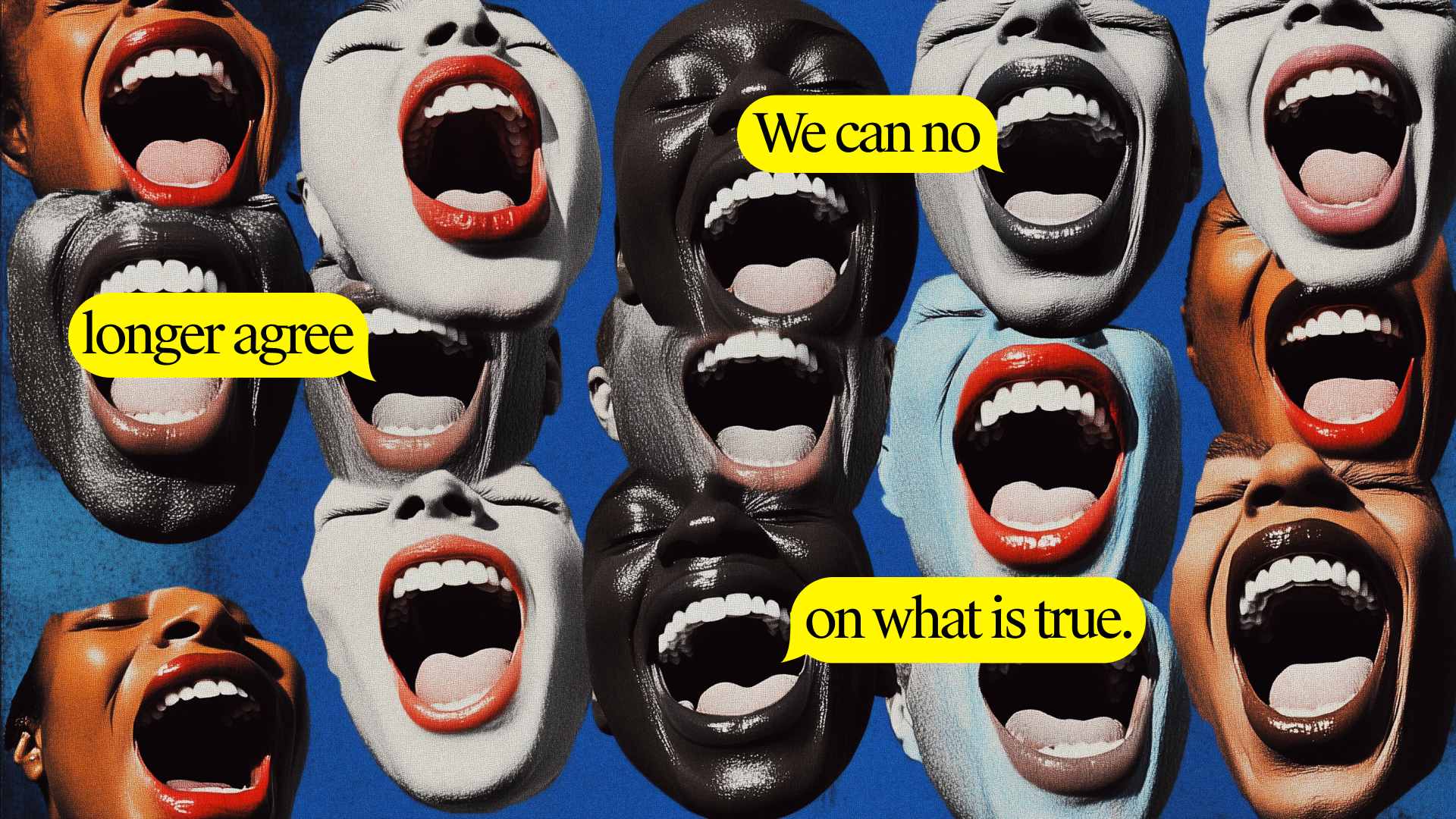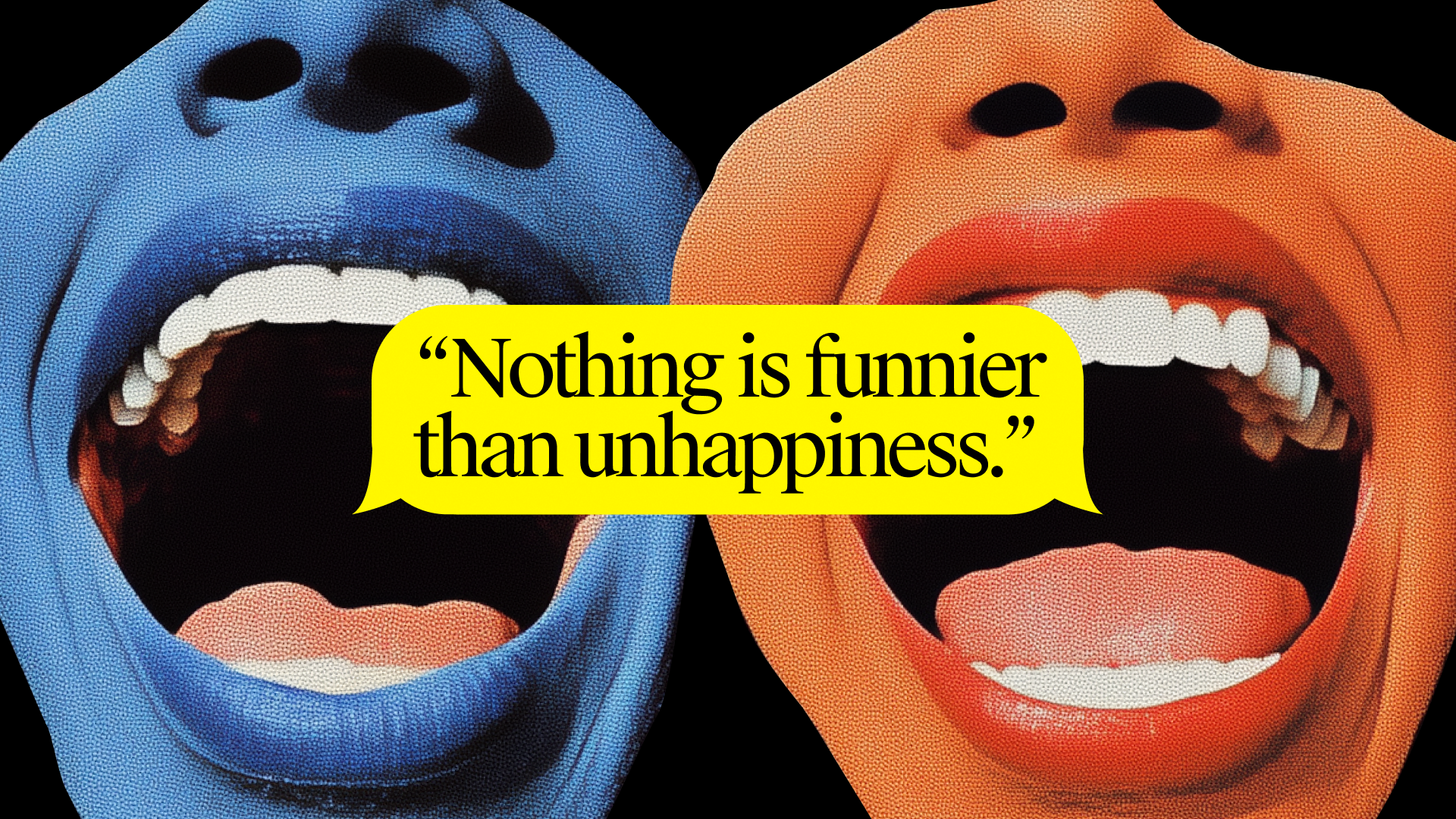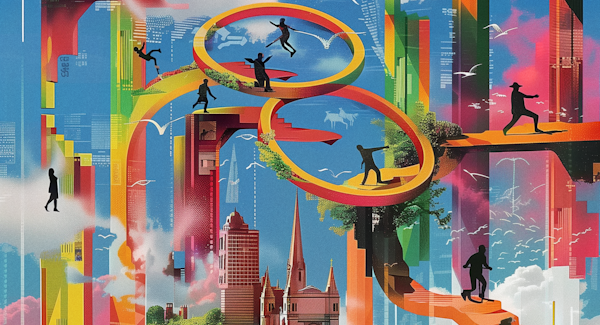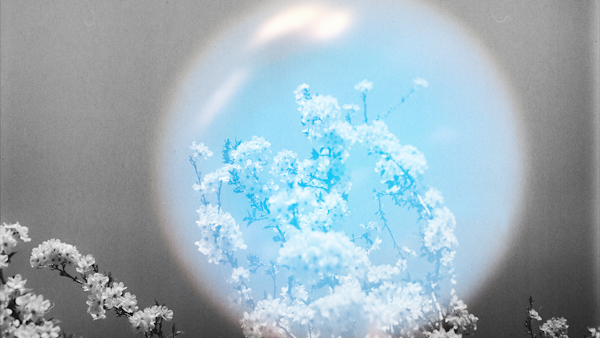Donald Trump, Elon Musk, Yuval Noah Harari, Kamala Harris, the Pope, and Samuel Beckett Walk Into a Bar

Long before Elon Musk spoke with Donald Trump, I did!
Sort of. A magazine set up a “fake interview” by confronting me (I had just published my first book, The Business Romantic) with quotes from Trump: Business Romantic vs. Business Cynic, that was the idea.
The article is from 2015, and it was clearly a different era (and civilization), which also made me write things I’m now embarrassed about, for example, this: “People like Virgin’s Sir Richard Branson or Tesla’s Elon Musk strike me as good examples of billionaires with strong vision, great intentions, and high levels of integrity.”
Sir Richard Branson, okay. Musk? Oops.
Nine years later, the best thing I can say about the agonizingly boring conversation between Elon Musk and Donald Trump on X last week is that it’s at least a dystopia we know: the same old wanna-be autocrats, except that this time their propaganda is exponential because it can bank on virality, enabled by all of us. While the pattern feels quaint, the lies these two men spew still have real-world implications (just see the anti-immigrant riots in the UK).
And yet, what is more disturbing is the dystopia we do not know yet: the production of knowledge that is no longer ours and entirely synthetic, the propaganda that no longer serves any human political agenda, but is simply a product of the system, if not its raison d’etre.

The history of networks—the end of human-dominated history?
I’m talking about AI of course and the ultimate shift of power to the digital networks that not only track and govern our lives, but increasingly, determine them. In The New Yorker, Joshua Rothman has a great piece in which he wonders whether we are already living in an age of “info-determinism.” He cites a passage from Yuval Noah Harari’s new book, Nexus: A Brief History of Information Networks from the Stone Age to AI (out in September). “What we are talking about is potentially the end of human history,” Harari writes sternly, before softening the blow: “Not the end of history, but the end of its human-dominated part.” Phew. And further: “Until very recently, the cultural cocoon we lived in was woven by other humans. Going forward, it will be increasingly designed by computers.”
To understand this sober outlook, Harari suggests we view information not as representational, but as a social construct that enables powers (government, companies, political parties, academia, communities, tech platforms, influencers, etc.) to “put people into formation.” In other words, it may be naïve, and in fact a historical error, to assume that information represents some objective notion of reality.
Reality as a product of repetition
These days, it’s becoming abundantly clear: Real or not—or in moral and epistemic terms, true or false—are no longer categories that matter. On today’s internet, reality is not a product of transparency, it’s a product of repetition. “If you make it trend, you make it true,” the online disinformation and abuse researcher Renée DiResta puts it with the snappy (itself trend-worthy) tagline of her new book, Invisible: The People Who Turn Lies into Reality. There is no longer just one reality we can all cling to, there are multiple.
I’ve written about this phenomenon before, coining it “polyreality,” and I would argue that the only way to survive in the polyreality is to create your own reality. This may smack like solipsism or, at the very least, escapism, but the point is that there’s actually no reality left from which to escape.
The creation of a new reality is centered on three tenets: narrative, curation, and repetition. A story is how we navigate the ambiguity of our environment, how we make sense of the world. It’s the promised land, a vision worth aspiring to, or a reading of the world worth attaching to. A story either inspires us to make a future destination our home or makes us feel at home in the past or present. Curation is the strategic, intentional, and continuous filtering of information to support the narrative. Repetition bolsters the curation, and curation bolsters the narrative. It’s a virtuous cycle.

Winning the humor war
The Harris/Walz campaign is perfecting this cycle. Instead of debunking Trump’s lies—instead of fighting for clarity and defending the idea of objective truth—it’s creating a parallel universe: one that is positive, playful, joyful, and fun. The Democrats are finally embracing what writer and political pundit Anand Giridharadas proposed in his 2023 book The Persuaders: they put feelings at the heart of their campaign, or to be more precise, they make voters feel good. Trump and the likes, once demonized as an existential threat to humanity, are now just “weirdos.” This is one major reason why we’re witnessing a “vibe shift.” It’s a vibes election, and Kamala Harris and her team are vibing with the zeitgeist, “going with the flow if they’re going low.”
And, most remarkably, they’re using humor smartly, not denigrating Republican voters, or at least only ever with a light touch. “Trump is losing the humor war,” Leif Weatherby commented in The New York Times.
In an interview with tech journalist Kara Swisher, the American comedian Mike Birbiglia pointed out that a joke usually comprises two elements: the setup and the punchline. The punch is an unexpected left turn. The setup, he explains, is a universal truth, something we can all agree to be true. The problem these days now is that this truth doesn’t exist anymore. We can no longer agree on what is true. So the only chance to be funny and land a punch is, if instead of a setup we’re in a collective moment together where everyone is seeing the same thing, where there’s a temporary sense of a shared reality—such as the X conversation between Musk and Trump—and to then comment on it with levity, speaking a truth, one that feels true.
“Common sense and a sense of humor are the same thing, moving at different speeds. A sense of humor is just common sense, dancing,” the Australian writer Clive James once said. Laughing is what makes us human, especially laughing about ourselves.
“Nothing is funnier than unhappiness.”
Pope Francis has caught on to this and recently invited several celebrity comedians, including Mike Birbiglia, to an audience at the Vatican. According to Birbiglia, the pontiff gave a not-terribly-funny but very touching speech about the importance of humor, especially in these divided times, as the great universal connector.
The Paris Olympics served as compelling evidence. At a contested women’s beach volleyball game between Brazil and Canada the players got into a heated argument—until the game DJ, cheekily, began to play John Lennon’s Imagine, a universally understood anthem of peace. The players couldn’t resist the irony, and instantly everybody burst into laughter. It was cathartic. The vibes had shifted.
Humor is also essential in the workplace. Naomi Bagdonas and Jennifer Aaker are teaching a popular course at Stanford, Humor: Serious Business. In their 2021 book, Humor, Seriously, they argue that humor is key to creativity and among many other business leaders cite Hiroki Asai, the former head of Apple’s Creative Design Studio, who contends that “humor is the most effective tool I’ve found for insulating cultures from fear.”
I wonder if humor might be an effective strategy for our fearful relationship with AI as well. Instead of worrying about info-determinism, the loss of reality and truth, the potential of AGI and the end of human history, perhaps we shouldn’t take ourselves too seriously, view AI simply as “weird,” and laugh about it all.
Just like the clowns of Samuel Beckett, the most astute observer of the absurd. In his play Endgame, they offer a punchline that is smile and tear at once, and though endlessly comforting: “Nothing is funnier than unhappiness.”
Tim Leberecht

The Olympics and the Production of Hope

Shock and Awe

Writing in a Crowded World

On the Beauty of Distraction

I Don’t Resonate with You

